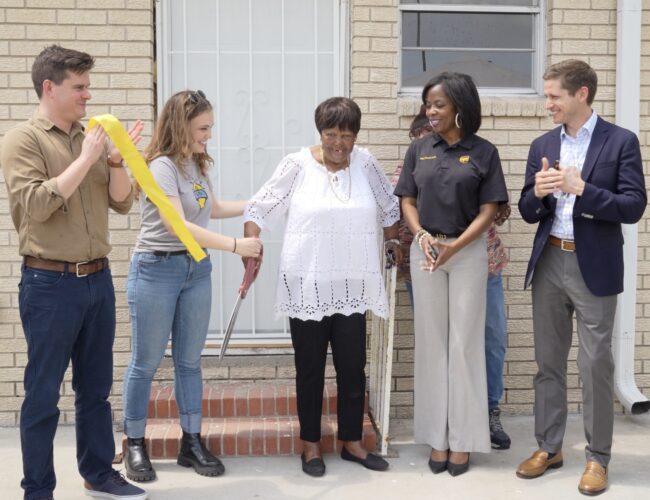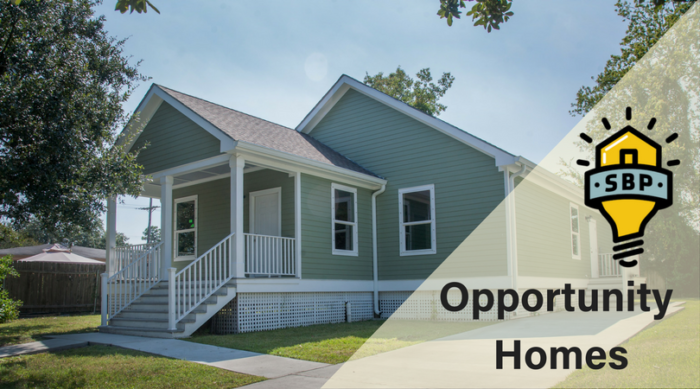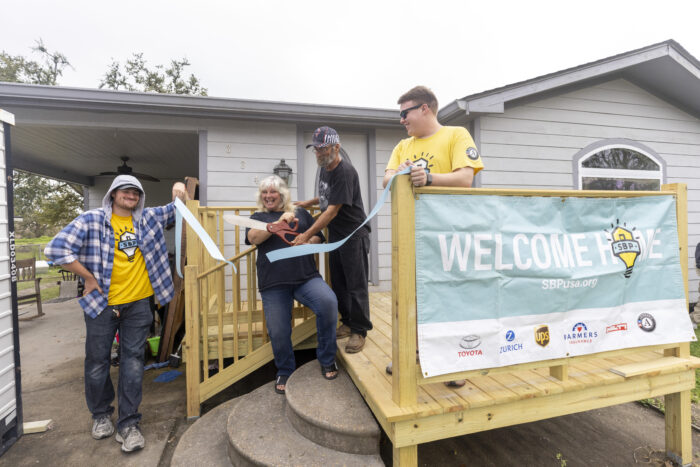Racial Equity in Disaster Recovery
Since our founding in 2006, SBP has recognized that the disaster recovery systems within the United States, Puerto Rico, and the Bahamas have failed black communities and communities of color time and time again. For example, according to The New York Times, Black individuals who apply for FEMA assistance typically receive between 5-10% less in federal recovery funds compared to their white counterparts. Additionally, the likelihood of Black applicants receiving a FEMA inspection decreases as the percentage of Black residents living in a specific ZIP code increases. In an effort to empower Black communities and communities of color, SBP founded its Disaster Assistance Program to provide FEMA assistance to help disaster survivors access more funding to support their immediate and long-term needs. Furthermore, SBP has made it a priority to implement effective solutions to common recovery issues, such as the lack of available recovery resources, inequitable distribution of funding, and bureaucratic roadblocks that significantly prolong the recovery process. By focusing on preserving generational wealth and affordable housing through our owner-occupied rebuild and opportunity housing programs, SBP creates a resilient place to call home for parents, children, and communities to attain stability and opportunity.
SBP’s hands-on building work also informs the upstream solutions that our Advise, Share, Advocate, and Prepare teams share with government administrators, nonprofits, and communities both impacted and at risk of future disasters. These interventions create a ripple effect across communities of color, positively impacting physical and mental health, improving academic and job performance, reducing crime and poverty rates, and restimulating local economies. Understanding that cross-sector collaboration and systems-level solutions are necessary for driving long-term social impact, SBP, its volunteers, and philanthropic partners remain committed to pioneering strategic, equity-focused interventions that work to reduce barriers and create pathways to building and preserving wealth for those vulnerable to falling into generational cycles of poverty.
SBP's Opportunity Housing program combats housing discrimination by supporting families in communities of color, like Jazmine's, in achieving access to affordable and resilient housing, empowering them to create generational wealth.
Notable Programs
Recovery Acceleration Fund
A Best-in-Class Public and Private Partnership with Financial and Social Incentives


SBP’s Recovery Acceleration Fund (RAF) is a social impact investment fund that provides microloans for post-disaster rebuilding to low-income, HUD-qualified families who are not eligible for SBA loans. The RAF acts as a bridge loan that allows low to moderate-income homeowners to make home repairs years faster than if they had to wait on traditional government programs (CDBG-DR). SBP will use the RAF to address the financial barriers confronting communities of color and other underserved communities by providing HUD-approved microloans. The RAF allows the most vulnerable survivors to return home sooner, ensures financial stability by safely and quickly returning families to (and restoring equity in) the homes they own, and reduces the stress and trauma associated with displacement after a disaster.
Opportunity Housing
Empowering Low and Moderate-Income Families with Affordable Housing


Through its Opportunity Housing Program, SBP makes the dream of homeownership for low and moderate-income families a reality. We build high-quality homes at an affordable price by pairing these homes with government-provided down payments and closing cost assistance. SBP homes are both energy efficient and storm-resilient, so families can build equity and save money on energy costs now while being better prepared to weather future disasters.
Owner Occupied Rebuilding
Preserving Generational Wealth for Low and Moderate-Income Families


SBP's Owner Occupied Rebuild Program (OOR Program) uses volunteers, charitable donations, and grants to return homeowners to their homes and communities following a disaster. This program serves low to moderate-income residents, focusing on the most vulnerable members of American society. These populations include families with children, the elderly, persons with disabilities, veterans, and individuals without sufficient insurance. AmeriCorps Members from all over the country subsidize this program by serving as Client Service Coordinators, Volunteer Coordinators, Supply and Logistic Coordinators, Construction Coordinators, and Construction Project Leads, overseeing the labor of more than 10,000 volunteers per location each year. SBP's effective use of volunteer labor further reduces rebuilding costs while engaging community members and fostering a shared sense of purpose for all involved. As a result, SBP rebuilds disaster-impacted homes in an average of 61 days at 40% of the cost of market-rate contractors, significantly shrinking the time between disaster and recovery for Americans in need across the country.

